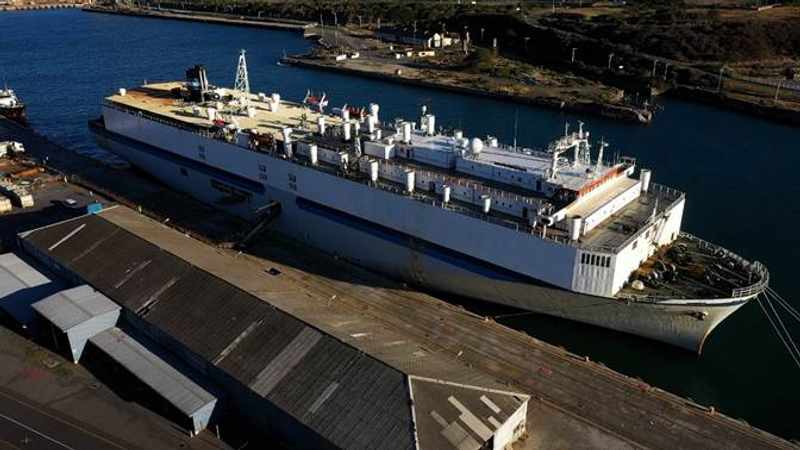
Al Mawashi South Africa has announced that it has concluded procurement and trading with livestock farmers for its first shipment of 2021.
“Trading with farmers was concluded over the past few months, and our Berlin feedlot outside King Williamstown has gone into biosecurity with the Al Messilah livestock carrier set to arrive at the Port of East London in the third week of June.”
Mr. Ally said that South African live exports has performed exceptionally well on the basis of empirical results.
“Since live exports commenced from South Africa to the Middle East in 2019, we had low mortality rates of below 1% during shipments. This figure, when compared to the 3,5% terrestrial mortality rate benchmark used by South African livestock farmers at their feedlots, is a successful outcome. It indicates that good OIE animal welfare and health systems take place onboard the vessel during voyages north of the Equator.”
Government supports live exports with publication of first draft guidelines
Mr. Ally said the recent publication of draft guidelines by government is welcomed and will benefit farmers and the industry as whole if it is conceived with originality for South Africa. Importantly, Mr Ally said, the publication of these guidelines signals that the South African government has committed itself to ensure the long-term sustainability of live exports.
Watch Al Mawashi SA’s terrestrial feedlot and harbour operations:
NSPCA is on a destructive path of litigation
Commenting on NSPCA’s litigation against live exports, Mr Ally said:
In the past 14 months, NSPCA has lost several cases at the Supreme Court of Appeal, and at High and Magistrate courts resulting in cost orders at the possible expense of public donations. In February last year, NSPCA filed incorrect court papers at the Makanda High Court resulting in the case being struck off the court roll. It was also criticised by an East London Magistrate for seeking powers beyond the Animal Protection Act (APA).
“Despite this, NSPCA’s leadership continues to attack the livelihoods of farmers and food security of Gulf nations.”
“Scientific evidence-led arguments from Al Mawashi’s legal counsel negated exaggerated claims around heat stress. The NSPCA’s main argument and critically flawed crystallised view is the transportation of sheep by sea north of the equator, which is legal in South Africa and not banned in any country, constituted a contravention of the APA.”
“We need to state categorically that the demand in the Middle East is for live animals because of consumer preference and religious requirements. The NSPCA must know and understand that an exporting country cannot dictate what preference and demand should be of an importing country.”
He said the NSPCA actions was destructive to goals and mandates advancing South Africa’s developmental plans, which is beneficial to the growth of farmers and also job creation.
“In a recent survey with statistically representative sample of livestock farmers in South Africa, 25,2% of respondents with a high concentration in the Eastern Cape indicated job losses will follow if live exports is banned, permanently or on a seasonal basis.”
“Any opinion of NSPCA regarding any part of the live exports supply chain remains a concern. NSPCA is implacably opposed to the transportation of live animals by sea in their positioning policy statement. Thus, they cannot not hold themselves up as neutral or independent to monitor any part of the live export supply chain. In short, they will always try to find fault with live exports on the basis of supporting their policy statement.”
NSPCA’s credibility has a chequered track-record. It has made numerous misleading and embellishing claims about live exports – this is well documented in the public domain and courts.
NSPCA continues to attack BEE and emerging farmer participation in live exports
Al Mawashi SA spokesperson JP Roodt says NSPCA’s attack this month on Al Mawashi’s commitment to BEE and emerging farmers remains a concern and is nothing more than attempt of polarization.
“What the NSPCA fails to mention is that since live exports began, the participation of BEE and emerging farmers have increased year-on-year since the first shipment. “
It is our opinion that the NSPCA board, which is largely urban and untransformed, does not understand some of the challenges that these farmers face because of decades’ economic exclusion and marginalisation. It is the duty of government and developmental agencies to empower and fast-track emerging farmers to participate in live exports, while Al Mawashi SA simply provides access to Middle Eastern markets. It is disingenuous of the NSPCA to criticize BEE and emerging farmer participation in live exports without having a clear understanding of the issues and challenges that are beleaguering these farmers.”
“It is well known by all stakeholders that farmers wanting to participate in live exports must have export ready sheep available.”
Animal rights groups attempt to mislead public with Suez Canal incident
Roodt said animal rights groups have recently blown isolated international events out of proportion. A good example he said was how these groups framed the Suez Canal blockage as an imminent animal cruelty crisis, and in recent months attempted to mislead the South African public by pre-empting an international live export ban in New Zealand that has not been enacted.
This was done at a time that South African government released draft guidelines for the transportation of animals by sea with a possible intent to sway views on live exports.
“There was no evidence of mass animal deaths reported on livestock vessels during the Suez Canal blockage. The allegations of these animal rights groups were sensationalist, opportunistic, and was a failed exercise stir controversy with media and public on the basis of speculation,” he said.
Credit IOL